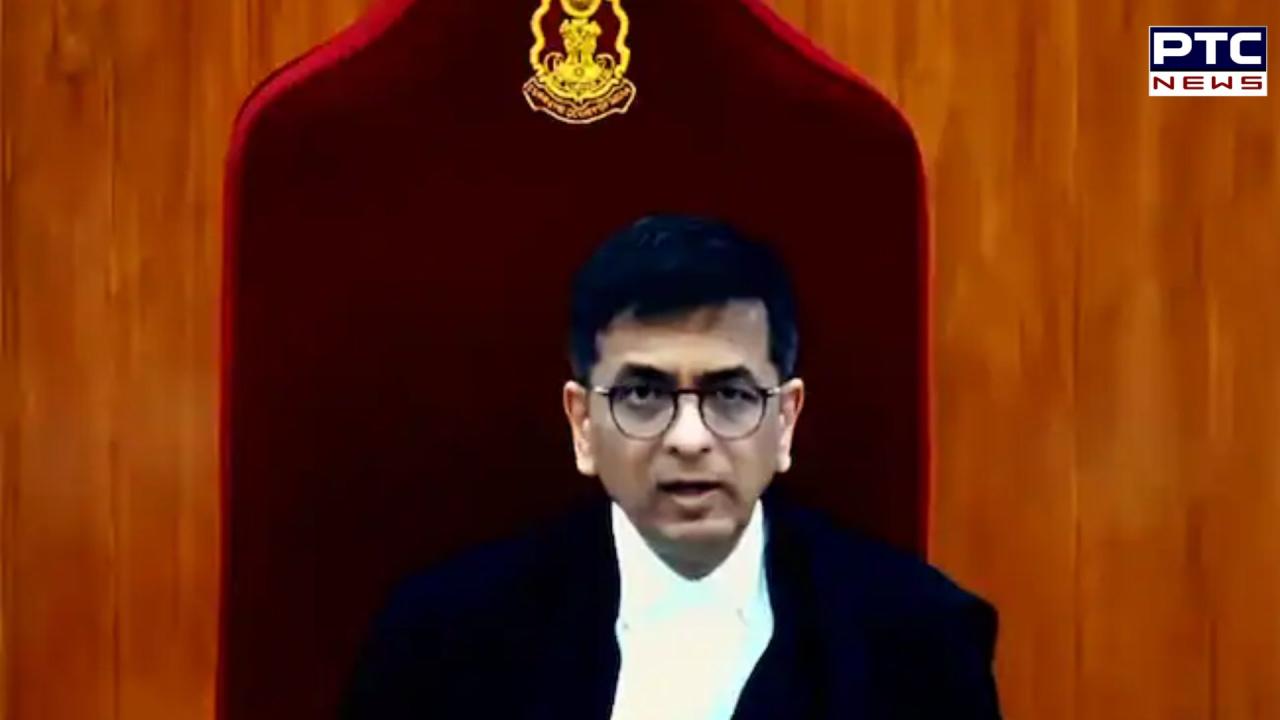Chief Justice responds firmly: No part of India can be called Pakistan
Justice Srishananda had drawn criticism for calling a Bengaluru neighbourhood with a majority of Muslims "Pakistan" and for acting inappropriately toward a female attorney.

PTC News Desk: The Supreme Court of India has officially closed proceedings against Karnataka High Court Judge Justice Vedavyasachar Srishananda after he publicly apologised for his controversial remarks made during court sessions. The decision was announced by Chief Justice of India (CJI) DY Chandrachud, who led a five-judge bench. CJI Chandrachud emphasised that the closure of the proceedings was in the interest of justice and upheld the dignity of the judiciary.
The controversy arose when Justice Srishananda, during a hearing related to a landlord-tenant dispute, referred to a Muslim-majority area in Bengaluru as "Pakistan" and made a misogynistic remark directed at a woman lawyer. These comments quickly gained traction on social media, prompting the Supreme Court to request a report from the Karnataka High Court, which was submitted soon after the incident.
CJI Chandrachud firmly stated, "No one can call any part of the territory of India as Pakistan," asserting that such statements undermine the territorial integrity of the nation. He stressed the importance of transparency in court proceedings, stating, "The answer to sunlight is more sunlight and not to suppress what happens in court." He added that efforts should not be made to close down discussions or criticisms regarding courtroom conduct.
The Supreme Court had taken up the matter independently and sought detailed reports regarding the remarks from the Karnataka High Court. The five-judge bench, which included Justices S. Khanna, B.R. Gavai, S. Kant, and H. Roy, highlighted the necessity for establishing clear guidelines for judges in constitutional courts concerning their public commentary and behaviour.
The bench expressed concern about the growing influence of social media in monitoring and amplifying courtroom proceedings, underscoring the urgency for judicial comments to align with the decorum expected in legal settings.
In viral videos, Justice Srishananda was shown referring to a Muslim-dominated locality as "Pakistan" and making inappropriate comments toward a female lawyer. In one instance, he remarked that the lawyer seemed to have an extensive knowledge of the "opposition party," suggesting that she might even be able to disclose the color of their undergarments. These incidents drew widespread criticism and led to discussions about appropriate conduct for judicial figures.


